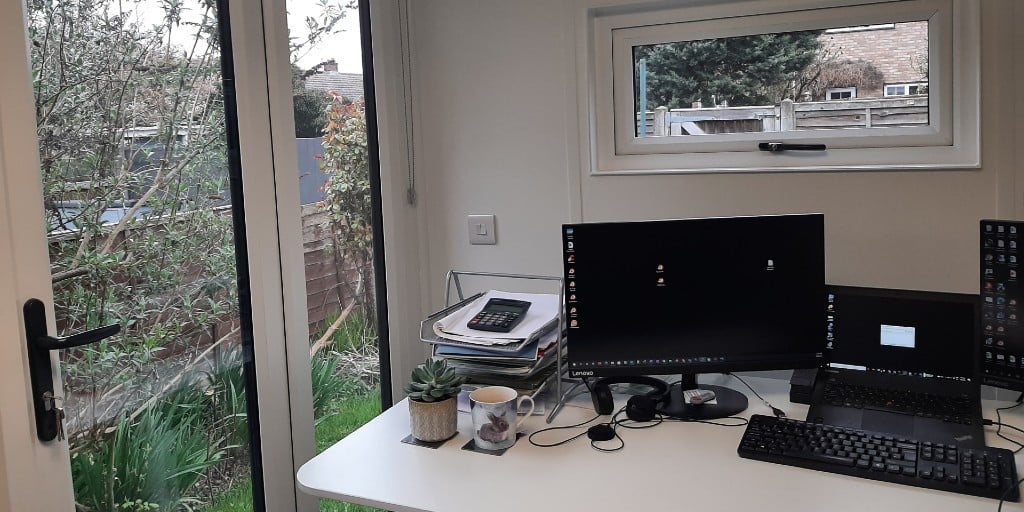Flexible work arrangements are nothing new as working from home for one or two days a week has been a long-standing benefit for many office-based workers, such as those in professional services. With enforced working from home during the pandemic and a series of lockdowns in the U.K., more employees were forced to use their kitchens, living rooms and bedrooms as makeshift workspaces.
I was lucky enough to already have a dedicated home office, and an employer who allowed me to work from home up to 5 days a week.
What changed for me was the enforced nature of working from home. Sharing the same space inside the home for work, leisure and at some points home-schooling, coupled with a growing family, also needing their own space, led us to look to our back garden to free up some extra room in the house, and avoid the need to move home.
And we are not alone in this trend: home improvements have increased exponentially in the U.K., not least because of house price inflation, leading to a dearth of affordable homes for those hoping to get onto the property ladder, and of larger family homes for those hoping to climb it. This has had a knock-on effect on the rental market too, with many properties let with few (or no) viewings. Many people are deciding to stay put and improve/expand their existing home, rather than look to move to a larger, less central property.
The benefits of working from home in terms of productivity, morale, time, and cost savings are well known. For me, the benefits of working from the garden are even greater. There is the psychological aspect of stepping outside the threshold to go to work, even if it is just across the patio, to a dedicated, separate space. The boundaries of home and work life are more distinct: I can focus on work in my garden office without distraction (well, apart from looking at the wildlife at close quarters) and switch to relax mode when I am back inside the house.




%20(3).jpg)


